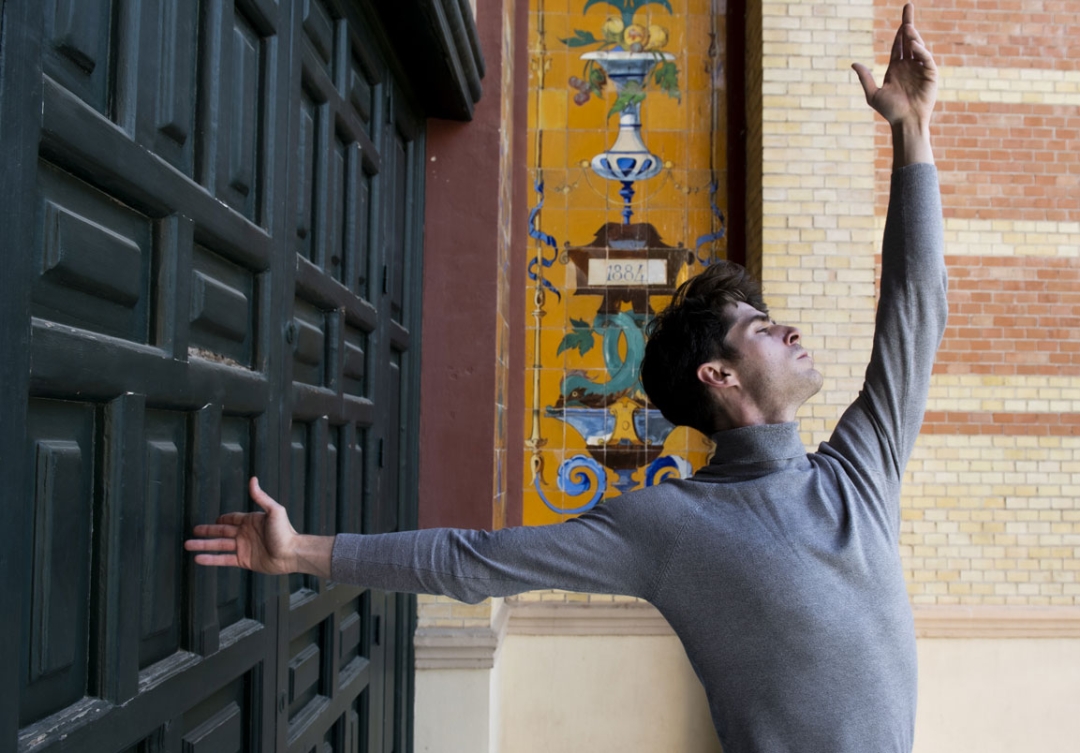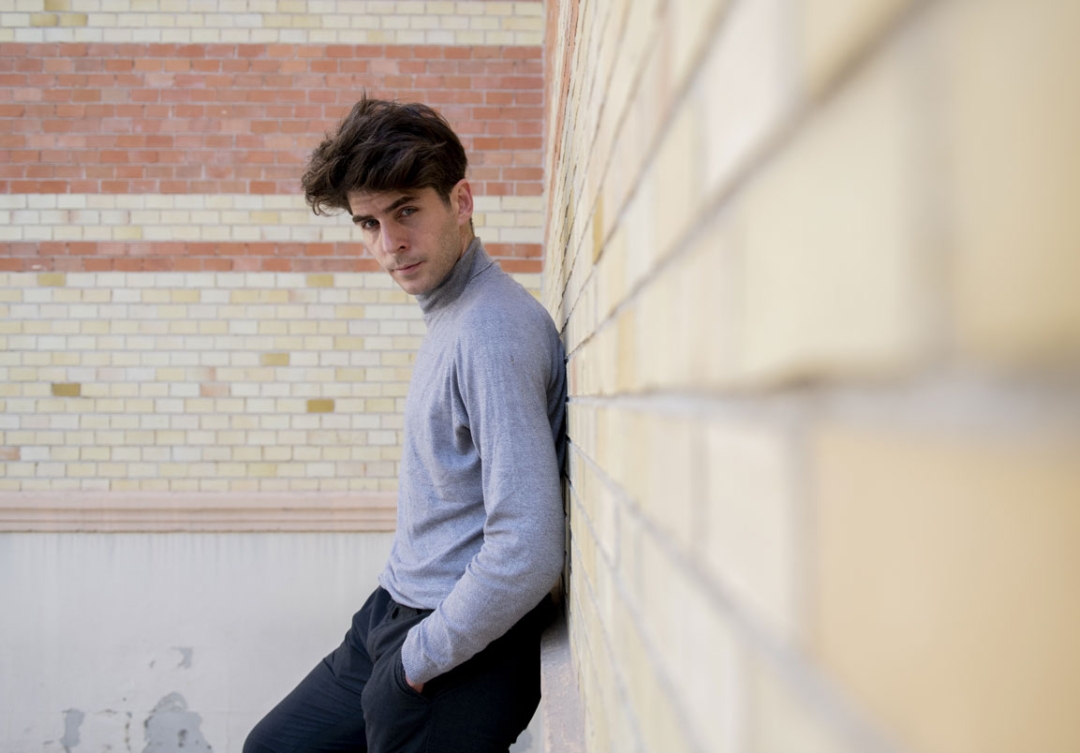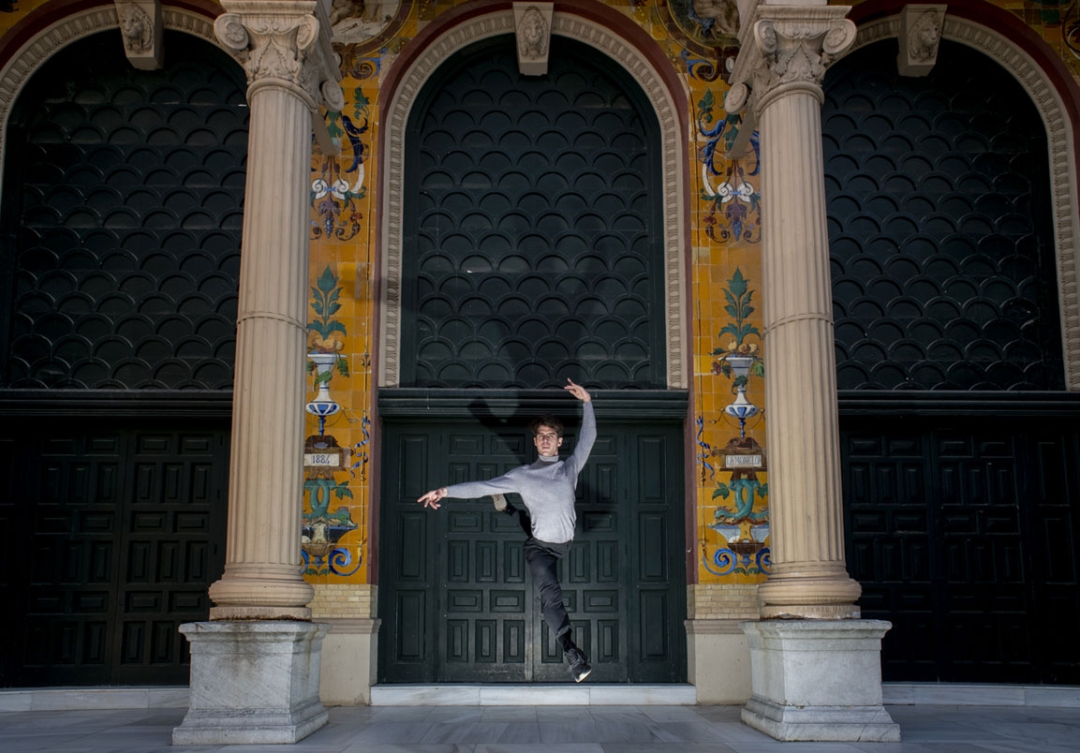Sergio Bernal
Beauty and harmony

The name of Sergio Bernal reverberates around the world of dance. An echo that, paradoxically, seems to diminish in his home country. But this doesn’t discourage a esthetic, harmonious and charismatic dancer who gently conveys a visceral passion for his work. With the Talía Award for Emerging Talent under his belt, which could well be for established talent, we meet him in El Retiro Park.
“Sergio is number one,” says Ricardo Cue, someone who has dedicated his life to the world of dance and who has worked with the most sparkling stars in the genre, including the legendary Maya Plisetskaya. As well as training big Spanish ballet names, such as Joaquín Cortés, Tamara Rojo or Igor Yebra. Ricardo confides this while Sergio Bernal (Madrid, 1990) dazzles the camera during a photo shoot in El Retiro Park in Madrid. So, just a few days before the dancer receives the Talía Award for Emerging Talent —sponsored by Iberia—, Ricardo surrenders to his partner’s talent.
“Everyone has their own talent, but life sometimes takes you along other paths and doesn’t allow you to develop it”
A few minutes before starting the shoot, Sergio surprises himself by admitting that he’d never visited the Palacio de Cristal before. Perhaps the reason lies in his sacrifice, the endless hours the dancer has dedicated to his great passion since he was small. “I crossed paths with dance by chance —Sergio tells us—. My mother signed my brother and I up to sevillanas, something quite surreal in 1994. It was uncommon to see boys dancing, but as soon as I started, I knew that was my path, the way I communicated.” He, unlike others, found his path early on and is aware of the privilege this entails: “Everyone has their own talent, but life sometimes takes you along other paths and doesn’t allow you to develop it.”

Sergio Bernal was appointed UK Ambassador for the Arts in 2019. © Alfredo Arias
Now Sergio is considered one of the best dancers in the world, certified, for example, by the Premio Positano he received in 2012, one of the greatest recognitions a dancer can aspire to. But let’s look back for a moment. A boy dancing was quite unusual, and, in this sense, Sergio recalls a memory, drawing a vivid image in our minds: “Once a year my parents used to organise a party in the park with their friends, and I used to put on my own shows. I remember an area where there was a stairway, a landing, and another stairway; it was like a stage and I’d dance up there while the other kids played football.”
“When you step onstage and touch the hearts of everyone watching, it fills your soul”
As he grew up, he became more aware of certain looks or comments, but he never paid them any attention because all he wanted was to enjoy himself and bring joy to others. Something that’s still his hallmark today. And now he knows that the best way to connect with the audience is through emotion: “When you step onstage and touch the hearts of everyone watching, it fills your soul.” Quid pro quo. Emotion, but also technique: “Technique is the bridge that allows you to jump from the stage to the seating area and move the audience.”

The Sergio Bernal Dance Company has already opened performances like ‘Rodin’ or ‘SER’. © Alfredo Arias
Sergio is aware of how difficult it is to attract the general public, but he doesn’t give up. “I work for the audience, for people who pay to come and see me and I have to connect with them, draw them in. And for that I have to be in the 21st century.” As it happens, last summer he opened SER, a show where he paid homage to US artist Beyoncé. And he did so with his own company (Sergio Bernal Dance Company), which he set up alongside Ricardo Cue after leaving behind the Spanish National Ballet, where he was lead dancer. A risky decision justified by his desire to continue growing as an artist.
Plenty of talent, few opportunities
At the head of his own company, Sergio doesn’t mince his words when describing the “critical” situation Spanish dance is in. “Dance in Spain doesn’t receive the institutional and political support that it should.” And he appeals to education to build knowledge around his art: “There’s a lack of support from schools, and I mean regarding sharing the wealth of dance as a whole.” Even so, Sergio doesn’t shy away from self-criticism: “Us artists have also made mistakes. In the end, when things don’t work, you can’t just dodge the issue, you have to think about what you’re not doing enough of to win people over.
“The situation of Spanish dance is critical, it doesn’t receive the institutional and political support that it should”
Sergio admits that there’s more talent than opportunities in Spain. And that lack of opportunities can translate into frustration, that of hundreds of dancers who finish their training every year and can’t find a place to show off their abilities. “When you think about what to do after sacrificing everything, and you see that there’s nothing you can do, you think: it’s so unfair!” Dance is a really tough discipline that takes hours and hours of work, not just physically, but also psychologically. “We artists work from a really early age to develop our career as soon as possible because it’s really short. I have ten years left at the most. Also, it’s a tough profession because the more experience you gain and the better you feel, the more your body goes downhill; it’s really counterintuitive and hard to accept.”

Cities like London, Miami, New York, Rome or Tokyo have fallen for Sergio Bernal’s talent. © Alfredo Arias
Finally, let’s let Sergio appeal to emotions, to the most visceral part of human beings, to invite the audience to give dance a chance: “Many people say that they don’t go to the theatre to see dance because they don’t understand it. But what is there to understand? The question is if it moves you or not. That’s it. It’s not a test, it’s simply a case of letting yourself go with the flow.” To back this up, Sergio, who has danced in dozens of countries, defends that dance is a universal language and gives an example: “Take a look at Japan. We’re quite different and separated by thousands of kilometres, however it’s the country with the most flamenco schools per square metre in the world. Because dance, alongside talent, which for Sergio is “the ability to move and connect people from different places and make them feel something they’re not used to”, has the virtue of winning the world over.


